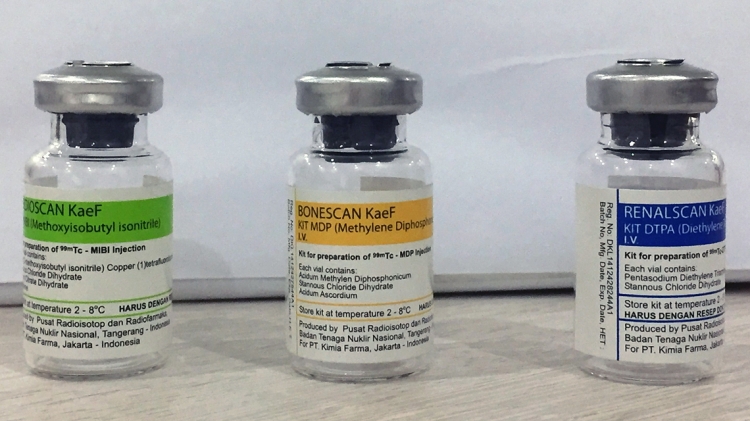Serpong, Indonesia – Brought under control in much of the developed world, tuberculosis, or TB, remains one of the leading causes of death in many developing countries. In Indonesia, where over 360,000 cases are discovered each year, and another 600,000 cases are estimated as unreported, detection of a form of tuberculosis that affects organs other than the lung will soon become easier – thanks to a new radiopharmaceutical developed by the country’s National Nuclear Agency (BATAN), with support from the IAEA.
While identifying TB in the lung – its most common form – has been possible through traditional methods and chest X-ray for over hundred years, the diagnosis of extra-pulmonary TB has been more difficult: the methods that exist are unreliable, slow and require invasive sample taking from the bone, which is painful and could lead to infections, particularly in rural hospitals where the right equipment is not available, said Fadil Nazir, a nuclear medicine specialist at BATAN’s Centre for Safety and Radiation Metrology at Pasar Jumat, South Jakarta.
A new technique developed over the last few years is much more accurate and painless for the patient, Nazir said. Diagnosis using nuclear medicine relies on the use of molecules that emit a tiny bit of radiation – enough to be detected using a gamma camera, but too small to cause harm when applied in line with accepted protocols. These tests provide results within just one to four hours.
While several radiopharmaceuticals are able to detect TB, they are not specific enough to the disease and hence cannot be used for clinical diagnosis. The key to the success of the research has been to find a molecule – ethambutol – that binds specifically to the bacillus Mycobacterium tuberculosis, which causes TB. Attaching a radioactive isotope of technetium – 99mTc – to ethambutol provides researchers with a compound that binds selectively to the TB bacteria, accumulating in the site of the TB lesion, while at the same time being detectable.
A 2018 article in the Annals of Nuclear Medicine by a researcher from BATAN and two medical doctors documented, for the first time, that the compound offers superior diagnostic characteristics compared to traditional methods. “This is a major breakthrough that allows us to support the Government’s efforts for increased diagnosis of extra-pulmonary TB around the country,” Nazir said. Combatting TB, which affects particularly the urban poor, has become one of the governments’ top public health priorities as urbanization and poor sanitary conditions have led to the spread of this infectious disease. The Government has set out to eliminate TB by 2030.
The findings of the recent article form the scientific basis for the licensing application of 99mTc-ethambutol as a radiopharmaceutical for diagnosis, said Hotman Lubis, Head of Radioisotope Technology at BATAN’s Centre for Radioisotope and Radiopharmaceutical Technology in Serpong, near Jakarta. The licensing process, including clinical trials, is expected to take two years, he said, and – if successful – will make Indonesia the first country to use the radiopharmaceutical.






